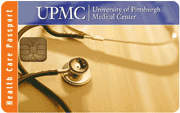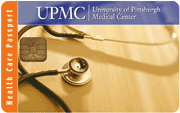Parco Finishes RFID Installation in Washington, D.C. Hospital
31 January, 2007
category: Biometrics, RFID
Parco Merged Media Corporation just completed what it calls “the largest civilian ultra-wideband (UWB) RFID-enabled location tracking system installation in the world” at Washington Hospital Center in Washington, D.C.
The system covers 2.5 million square feet at the 926-bed facility.
The ER One Institute is part of Washington Hospital Center and MedStar Health and has a mission of improving the readiness of the nation’s hospitals and health care systems to respond to mass casualty incidents and high-consequence events, by deploying innovative solutions that work in actual practice.
Parco’s Largest Civilian UWB RFID Installation Completed
Multi-million Square-Foot Campus Has Total Location Coverage. The achievement of this milestone proves to the healthcare and RFID industries that Parco is the demonstrable leader of commercialization within this market space.
Washington, D.C. (PRWEB) January 31, 2007 – Parco Merged Media Corporation is pleased to announce that it has completed the largest civilian ultra-wideband (UWB) Radio Frequency Identification (RFID) enabled location tracking system installation in the world at Washington Hospital Center in Washington, DC. The system covers 2.5 million square feet at this 926-bed facility.
“We have deployed an innovative technology that will support the broad scalability of operations needed during a mass casualty incident or disaster. If we can track patients, key equipment, and key staff throughout the whole hospital, we will be able to increase the number of patients we can care for several times over.
The announcement was made by Parco’s Chief Executive Officer (CEO) Scott Cohen.
The goals of the project are to address the daily tracking and location needs of a major tertiary medical center, to enhance the hospital’s emergency response capabilities, and to explore innovative analysis and application of the information collected.
The project at Washington Hospital Center is being implemented under the leadership of Dr. Mark Smith. Dr. Smith is chairman of the Department of Emergency Medicine at the Washington Hospital Center, and director of the ER One Institute at Washington Hospital Center and MedStar Health, and chairman and professor of Emergency Medicine at Georgetown University School of Medicine
According to Dr. Smith, Washington Hospital Center has embraced the real time location technologies provided by Parco Wireless in order to meet the stringent requirements for accurate location reporting of assets and patients. “Over the past few years we have evaluated many location systems designed for indoor use,” said Dr. Smith. “For our mission critical environment, we found the reliability of Parco’s hardware and software to be the only solution capable of meeting our requirements for accuracy, reliability, and scalability.” Parco has installed its patient and asset tracking systems throughout the entire hospital. When fully operational, the system will provide sub-room accuracy and real time reporting across the 926-bed facility.
According to Dr. Smith, “Washington Hospital Center, by virtue of its location in the District of Columbia, its size (one of the 25 largest hospitals in the nation), and its specialized capabilities (busiest emergency department, largest trauma center, regional burn center, five helicopter medevac program), has a special responsibility as a core medical care resource for a terrorist attack or other mass casualty incident.”
“By installing Parco location tracking throughout the hospital,” Dr. Smith said, “we have deployed an innovative technology that will support the broad scalability of operations needed during a mass casualty incident or disaster. If we can track patients, key equipment, and key staff throughout the whole hospital, we will be able to increase the number of patients we can care for several times over.”
Washington Hospital Center has first-hand experience in managing mass casualty and bio-terror events. The Hospital Center cared for critically injured casualties during the September 11 attack on the Pentagon and treated hundreds of patients during the subsequent anthrax exposures in October.
Over the past year, technicians installed standard structured networking cables at the hospital, which spans several eight-story buildings over its 18-acre campus to accommodate the several hundred RFID readers needed to track critical mobile medical equipment and patients. Once the system is fully operational by spring 2007, nurses, doctors, and support staff at the hospital will be able to locate -within two feet- the critical mobile medical equipment needed in the provision of everyday care as well as during mass casualty incident The data generated by the Parco locations tracking system is visible in Microsoft Azyxxi, the clinical information system developed and deployed at Washington Hospital Center.
“We are very excited by the opportunity that Washington Hospital Center has provided Parco over the previous 5 years and culminating in this campus-wide project,” said Scott Cohen, CEO of Parco Wireless. “Recent advances in Parco’s Real Time Location System (RTLS) technologies, including RFID radio frequency such as ultra-wideband, and software management tools now make indoor positioning systems worthwhile for all hospitals. We have created a system that is simply not available from other technology providers. The resultant capabilities of Parco Wireless RTLS technology are a solution suitable for everyday use as well as for expanded use in disaster settings. This is a model which other hospitals are now adopting. The achievement of this milestone proves to the healthcare and RFID industries that Parco is the demonstrable leader of commercialization within this market space.”
Technical Information about the Parco UWB Tracking Solution
The system uses a structured category 5e cabling system. Various communication closets located throughout the campus use Cisco local area network layer 2 Ethernet switches to transmit data to a server room. The communication closets feature triple redundancy and include fiber optic connectivity. Power management solutions are supplied by Dataprobe.
Servers run the Microsoft Server 2003 operating system and Microsoft SQL Server. Four servers are required to support the current tag load. Other Microsoft software used for the project includes: PowerPoint, Internet Explorer, .NET, Visual Basic .NET, Remote Desktop, VPN and Azyxxi.
Parco software used for the project includes the Parco Parser, Parco Manager, RTLS/GIS Database, RTLS DataService, RTLS WebService, RTLS WindowsService and the Parco SDK. Various software tools were invented to support this installation including the Buildout Tool, RFID Tag Metrics, and the Zone Builder Tool. Parco’s software provides middleware and application programmer interfaces for rapid development and deployment.
Installation for the equipment was performed by New England Networking, an authorized Parco project management firms, and with sub-contracted labor from TalentTree. Installation and programming of the system was conducted using laptop wireless connected to Parco’s software from the hospital’s Aruba WiFi network.
The system will initially locate, track and manage 2,500 tags. The campus is 18 square acres per level and includes several buildings that span 8 stories (2 sub levels plus 6 floors) or approximately 142 acres. The building coverage foot print is approximately 2.4 million square feet or 57 acres. The system provides full campus coverage indoors plus outdoor coverage in a courtyard and an outdoor staging area for mass casualties. System specifications vary for tracking granularity in terms of spatial resolution; approximately 85% of the campus provides real time location information to sub-room accuracy. The remainder of the campus provides either proximity or hall level tracking. The entire campus is capable of tracking and locating each tag typically once per second per tag.
About Parco Wireless
Parco is the healthcare industry leader in providing the most reliable, scalable and accurate RFID-enabled resource and patient workflow management tools available to hospitals today. Parco’s state-of-the art indoor positioning systems incorporate an advanced form of non-interfering radio frequency technology as well as advanced software management tools that consistently report sub-foot accuracy for thousands of patients and hospital equipment. Parco’s systems are designed to work with most legacy systems for easy software integration, electromagnetic and radio frequency compatibility. The Parco systems optimize asset utilization in everyday use as well as emergency situations, increase patient flow, reduce wait times, reduce operating costs and improve overall patient care quality.
About Washington Hospital Center
Washington Hospital Center is a not-for-profit 926-bed acute care teaching and research hospital based in Northwest Washington, D.C. It is the largest private hospital in the nation’s capital and among the 25 largest hospitals in the United States. The Hospital Center is the flagship facility for the MedStar Health system. It consistently ranks among the nation’s top hospitals as measured by entities such as U.S.News & World Report, Money, Consumer Checkbook and Solucient. The Washington Heart program is a national leader in the research, diagnosis and treatment of cardiovascular disease; its angioplasty lab is recognized by the DuPont Foundation as the busiest in the nation. Washington Hospital Center’s neurosciences program offers the full range of surgical and minimally invasive treatment and operates the only JCAHO-accredited Primary Stroke Center in the District. The Washington Cancer Institute provides the latest in cancer treatment and therapies and access to cutting-edge clinical trials. The Hospital Center is also home to MedSTAR, one of the country’s top shock-trauma treatment and transport facilities and the region’s adult Burn Center.
About the ER One Institute
The ER One Institute is part of Washington Hospital Center and MedStar Health and has a mission of improving the readiness of our nation’s hospitals and health care systems to respond to mass casualty incidents and high consequence events, by deploying innovative solutions that work in actual practice. The ER One Institute is committed to innovation and advanced technology applied to practice, research, training, and education in the service of improving the emergency readiness of our nation’s hospitals and health care systems. Because the ER One Institute is housed at the major receiving hospital in the National Capital Region, its work is grounded in daily hospital operations and it has direct access to clinical sites and healthcare personnel to implement and test its new solutions and technologies.



